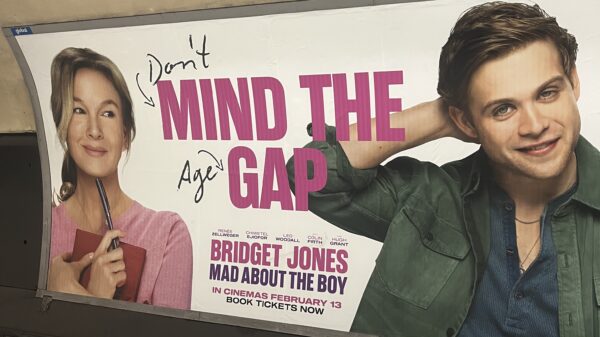Media Editor Lydia Leung reviews Steven Spielberg’s “The Fabelmans”, a fascinating portrayal of a man who changed Hollywood forever.
“Movies are dreams, doll, that you never forget.”
Thus begins “The Fabelmans”, Steven Spielberg’s semi-autobiographical portrait of his adolescent self as an aspiring filmmaker. Decades in the making, Spielberg’s most overtly personal work of his storied career offers us a glimpse into his formative years, and while it may not exactly be a superhero origin story, it undoubtedly comes close.
Gabriel LaBelle stars as Sammy Fabelman, a Jewish boy growing up in post-war New Jersey whose obsession with film begins when his parents Burt (Paul Dano) and Mitzi (Michelle Williams) take him to the cinema for the first time. Wide-eyed, he watches as trains derail and cars crash, mesmerised by the silver screen. He doesn’t realise it straight away, but his life changes forever in that moment, and soon he finds himself becoming a quasi-documentarian of his family’s life, Bolex in hand.
Williams is excellent as Sammy’s slightly offbeat mother Mitzi, who gave up a promising career as a concert pianist to start a family. Modelled after Spielberg’s own mother, she encourages Sammy’s creative pursuits, initially under the condition that he keeps it a secret from his father. The white lies Mitzi encourages him to tell morph into something bigger, as he grapples with his desire to make art over his father’s wish for him to find a “proper” career.
As a contrast to Sammy and Mitzi’s artistic side, Dano imbues Burt Fabelman with a certain industriousness, his good nature lending sincerity to his words even when they are being used to discourage Sammy from pursuing filmmaking. “It’s just a hobby he’ll grow out of,” he says. The last five decades of Hollywood show that couldn’t be further from the truth.

The Fablemans, image courtesy of Universal Studios and Amblin Entertainment
Rounding out the cast are Seth Rogen, playing family friend Bennie Loewy, and Judd Hirsch in a ferocious cameo as Sammy’s lion-taming granduncle Boris. Rogen brings an understated magnetism to a character that could easily have been unsympathetic, always aware of his place in the world and his role in the Fabelman family.
Conversely, Hirsch’s limited screen time is punctuated by erratic outbursts of emotion, the embodiment of an artist who sacrificed for their art. In a pivotal scene, Boris lectures Sammy on the choice he will have to make between his family and his art. Sammy affirms his love for the former, but Boris disagrees, gesturing at his flatbed editor. “But this, I think you love more”. And what a terrifyingly sincere line that is, foregrounding Sammy’s affection for his family with his need to make art.
True to form, Spielberg reunites with a host of his frequent collaborators. Fresh off the success of “West Side Story”, cinematographer Janusz Kaminski captures the nostalgic charm of the 60s in gorgeous 35mm, evoking old Hollywood glamour through yellow and blue tones. While the lens flares are toned down in this instance, bokeh scatters across the frame at key moments, giving it the hazy, dreamlike quality so crucial to the film.
At times, the camera moves almost like a second character: on his John Ford-inspired homebrew Western, it glides smoothly along the path of Sammy’s makeshift dolly. As he spins his reel of film from a family camping trip, it revolves around him, allowing the audience a glimpse into his mind as he edits. Accompanied by a piano-led score by John Williams, arguably one of the greatest film composers of all time, Spielberg takes us through the highs and lows of growing up and discovering who you want to be.

The Fablemans, image courtesy of Universal Studios and Amblin Entertainment
For me, the key to “The Fabelmans” lies in how it treats filmmaking as an art, and I say this with full cognizance of how pretentious this sounds. From the beginning, it’s obvious Sammy sees film differently to his peers, scraping together money to buy film stock and (unfortunately) being the only person in his Boy Scout troop who behaves appropriately at the cinema. Spielberg’s awareness of his humble beginnings prevents Sammy from being obnoxious; he’s just a kid trying his best to do what he loves. Making a movie with your friends, one camera, and no budget never looked as glamorous as it does here.
His improvised editing techniques and special effects on set are endlessly entertaining, and we wonder at his ingenuity under pressure. Despite his father’s insistence that he get a “real job”, he steadfastly insists that it’s “not just a hobby”, words which will be familiar to any budding filmmaker. Films become a heightened version of reality; the camera sees everything that the human eye does not. And inevitably, this leads into the crux of the film, when Sammy discovers a secret that will tear his family apart forever.
It’s no secret that his parents’ divorce had a huge impact on Spielberg’s life. He captures childhood pain through analogue, blending his love for filmmaking with grief over his family’s separation. Although it was initially marketed as his “love letter to cinema” (one letter among many in recent years), it seems more apt to view it as a love letter to his parents. No blame is ever assigned to either Burt or Mitzi for their divorce, and for that matter, no one else is truly villainous.
Even Sammy’s high school bullies who levy anti-Semitic abuse at him are empathetically portrayed, his camera bringing a fresh perspective to otherwise two-dimensional characters. The nuances of teenage politics are not lost on Spielberg; scenes set in classrooms and corridors play out like classic coming-of-age films, all the way down to the ending. (Apart from a spectacular David Lynch cameo, although that does raise the question of whether coming-of-age films would benefit from more David Lynch cameos.)
After thirty-three feature films and almost fifty years spent working in Hollywood, it’s a marvel Spielberg has remained as consistent as he is. Don’t mistake “The Fabelmans” for being a by-the-numbers biopic: while admittedly a tad saccharine, it offers us an intriguing look into what made him one of the greatest film directors in the history of filmmaking and reminds us never to forget where we came from.

















